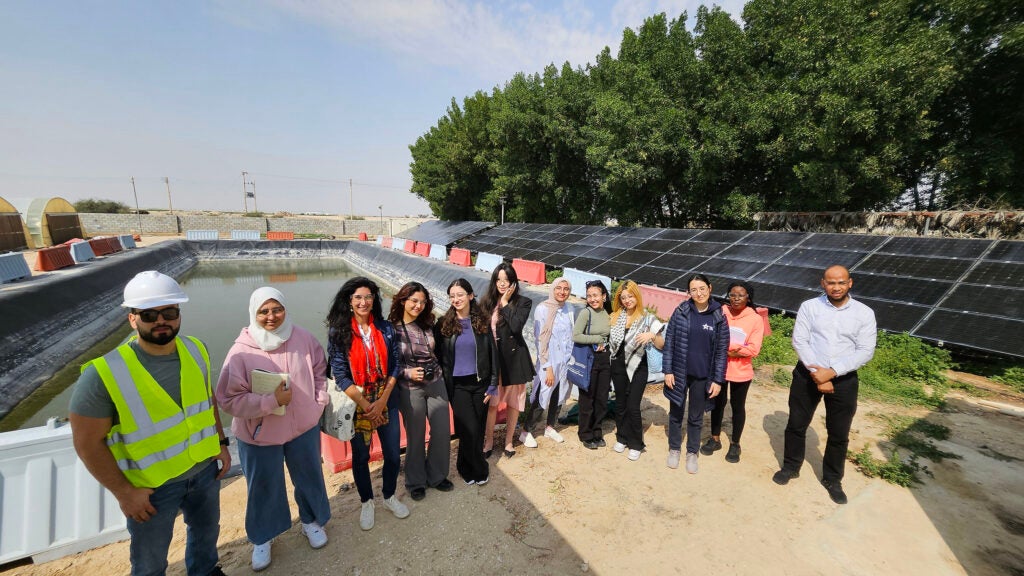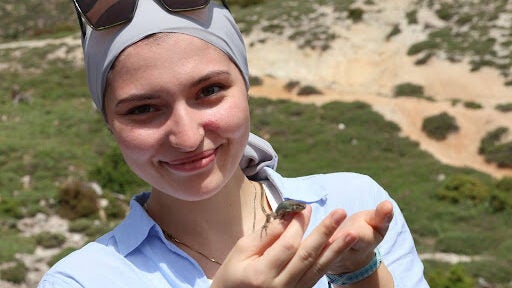Science Technology and International Affairs (STIA)
Explore the technological and scientific issues at the heart of today’s international affairs.
Overview
Launching in Fall 2026, the science, technology and international affairs (STIA) major equips you to tackle the world’s most pressing global challenges by applying cutting-edge science to complex political, social, and ethical issues.

By combining science with international affairs, the STIA major prepares you to explore the technological and scientific issues driving today’s global conversations. As part of this program, you will engage with groundbreaking research and collaborate with experts to find innovative solutions to challenges like climate change, energy, or cybersecurity.
Why Study STIA
Now more than ever, science and technology are at the heart of international affairs. The Science, Technology, and International Affairs (STIA) major equips students with the knowledge, skills, and confidence to engage with these challenges and opportunities. As a STIA major you will:
- Communicate complex scientific concepts clearly and persuasively
- Build a versatile skill set for careers in international development, government agencies, global health organizations, and beyond
- Learn scientific theory and practice through a laboratory-based science sequence
- Develop multidisciplinary expertise in a concentration area
- Incorporate scientific knowledge and methods into the study of international affairs
Graduating with a science, technology and international affairs degree means you will be equiped with a combination of scientific knowledge, technical expertise, and understanding of global challenges, preparing you to lead where science and technology intersect with global policy. As an STIA graduate, you will be well-positioned to work in government agencies, international organizations, NGOs and the private sector, tackling global problems with innovative solutions.



Program Details
- STIA Program Advisor: Dr. Rowan Ellis, Assistant Teaching Professor of Science
STIA students follow the regular SFS core curriculum, complete a lab science sequence, and develop an in-depth understanding of a technical area as a concentration.
Science Fundamentals
STIA majors are required to develop a grounding in at least one field of science. The STIA major science fundamentals requirement can be met before or after declaring STIA as a major, although it is strongly recommended that these courses are taken in the first or second year of study. This requirement can be met by taking foundational sequences of laboratory-based, natural, or computer science. Students are strongly encouraged to develop a deeper background in science and technology through additional coursework related to your foundational sequence of science courses. STIA majors are also required to take one course in research or analytic methods related to STIA disciplines.
STIA Fundamentals
STIA majors must complete the following courses:
- Science & Technology in the Global Arena, should be taken in the sophomore year
- Four courses from a specialized area (at least two of these courses must have STIA prefixes)
- One STIA Senior Seminar course or the STIA Honors Thesis course sequence
STIA fundamentals courses should be chosen in consultation with the STIA faculty advisor and STIA Curricular Dean.
How to Declare
During the first semester of their sophomore year, students meet with their academic advisor to declare their major. When declaring a major, sophomores prepare a declaration proposal outlining the reasons why they are pursuing one of the majors offered at GU-Q, including how the intended major coincides with their academic interests and possible career goals.
Frequently Asked Questions
Students who elect this major will be well-positioned to work in government agencies, international organizations, NGOs and the private sector.
All GU-Q students, regardless of their major, take a number of free electives that allow students to explore courses and issues that interest them but that do not directly relate to their specific major.
To qualify for honors, students must take both the research methodologies seminar and the thesis seminar.
One cannot pursue Honors and a Certificate simultaneously, given the heavy workload. If the student insists on doing both, he or she MUST complete the Certificate thesis in the junior year. The deadline for submitting the certificate thesis in its approved form would be the first day of classes in the student’s senior year.